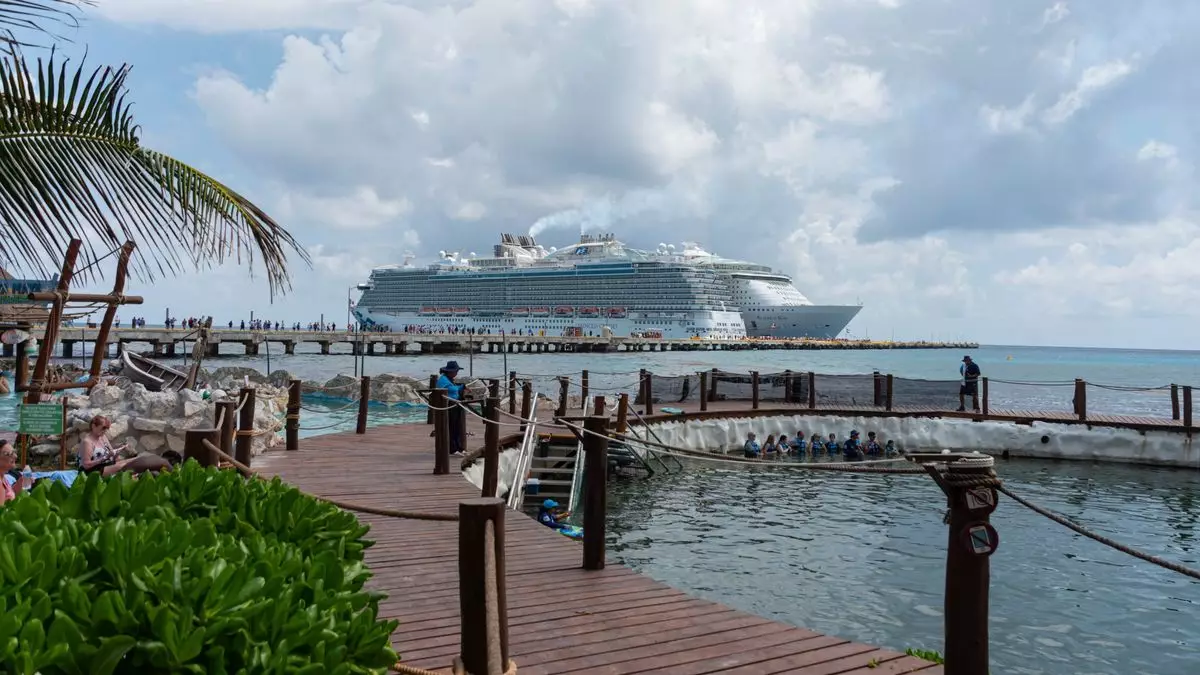The recent decision by Mexico’s legislative chambers to impose a $42 head tax on cruise passengers has stirred significant debate within the travel industry. As this new measure is set to take effect on January 1, questions are being raised about its potential impact on the country’s cruise sector, with cruise line representatives sounding alarms about the dangers of increased costs. However, contrasting views offer a broader perspective on both the economic and operational implications of this tax.
The primary aim of the head tax is to treat all visitors equally, whether they arrive by air or by sea. This tax reflects a growing trend among nations seeking to generate revenue through tourism taxes. For some, it’s seen as a necessary step to fund local programs and bolster the economy. The Mexican government has stated in its communications that this measure will align tax obligations for those disembarking from cruise ships with those arriving via airports. Historically, passengers arriving by land or through overnight stays have contributed directly to local economies, while cruise guests were exempt from this burden.
Key industries are affected by this new development, particularly the cruise lines themselves, which already face myriad operational costs. According to Andrew Leahey, an adjunct professor and columnist, while the tax may add to overall expenses, tourists tend to overlook minor increases when booking vacations. A perception exists that an extra charge of this nature could easily become integrated into the overall cruise pricing structure, merely an adjusted figure in the final accounting.
Despite the arguments in favor of the tax, many industry leaders are voicing apprehension. The Florida-Caribbean Cruise Association (FCCA) has articulated that such an increase could dissuade cruise operators from including Mexican ports in their itineraries. Michele Paige, the FCCA’s CEO, highlighted that the imposed fee makes Mexico’s ports potentially 213% more expensive compared to the average Caribbean port. The concern is that cruise lines, in search of cost-effective options, may begin to reconsider their routes altogether, benefitting other Caribbean destinations with more moderate pricing structures.
Similarly, Tawnee Sons, co-owner of a cruise planning business, underscored that rising taxes and fees could lead to a significant downturn in demand for Mexican ports. As travelers increasingly lean towards value for their vacation dollars, a $42 increased expense on port calls may deter families and travel groups that typically see cruising as an economical way to vacation. With travel patterns continuously evolving, there’s a risk that Mexico could become less appealing when families can find more budget-friendly alternatives elsewhere.
The consequences of the head tax could be particularly pronounced in Quintana Roo, a region heavily reliant on cruise tourism. The FCCA notes that approximately 40% of the state’s GDP is tied to the cruise sector, and any reduction in passenger numbers could wreak havoc on local businesses and economies. This region has thrived from cruise tourism, and the introduction of higher fees may inadvertently shrink the influx of visitors, diminishing the economic vibrancy that cruise ships bring alongside their passengers.
Furthermore, with the tax having been passed shortly after a series of trade and tariff discussions in the United States, including statements from then-President-elect Trump indicating potential tariffs against Mexico, it raises questions about the broader implications. Some analysts believe that U.S. travelers, who make up a significant portion of cruise passengers, may view this head tax unfavorably. The perception of being targeted for additional costs could weigh heavily against Mexico as a cruise destination.
The crossroads facing Mexico’s cruise sector raises critical questions about whether municipalities can successfully balance the need to generate revenue while maintaining their attractiveness as holiday destinations. As more countries adopt taxes on tourism, there is a risk of alienating the visitor base they work tirelessly to attract. The prospect of policy changes needs to carefully consider long-term repercussions, with awareness of how significant shifts in pricing can ultimately alter consumer behavior.
While the new head tax could provide immediate financial resources for the Mexican government, its long-term effects on tourism, especially cruise travel, warrant careful scrutiny. The conversation surrounding this tax reflects broader trends in the travel industry, emphasizing the delicate balance between generating revenue and ensuring that destinations remain competitive in a rapidly evolving market. Addressing these challenges will be paramount for sustained economic health, especially in regions where tourism constitutes a lifeline.

